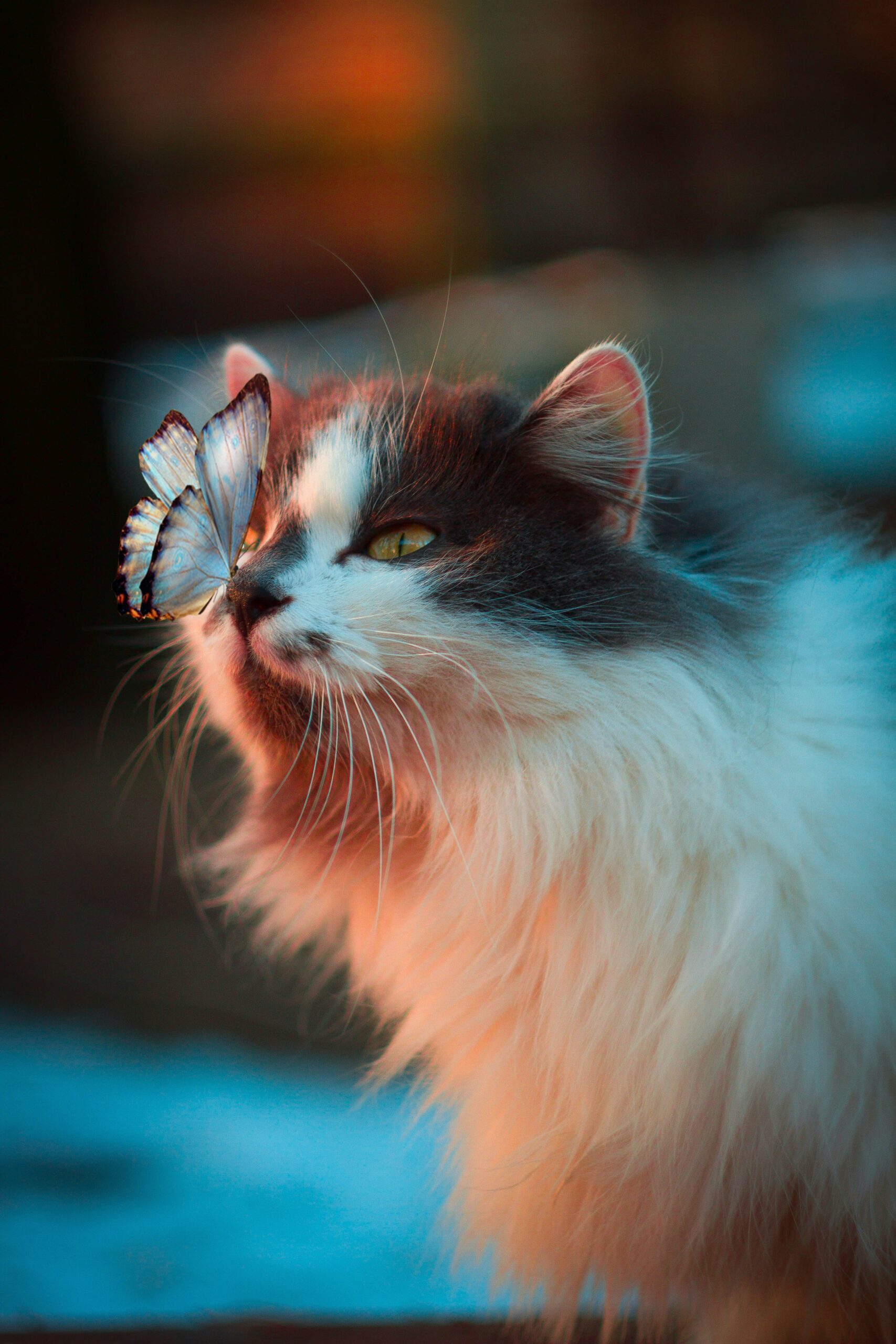Have you ever wondered if it’s safe for your feline friend to indulge in a plate of cooked eggs? You’ll be delighted to know that cats can indeed eat eggs that are cooked! Eggs are a nutritional powerhouse, packed with protein and vitamins that can benefit your cat’s overall health. However, it’s essential to ensure the eggs are fully cooked and not seasoned with any harmful ingredients before serving them to your furry companion. In this article, we’ll explore why cooked eggs can be a healthy addition to your cat’s diet and provide some insights on how to prepare them safely.
Health Benefits of Eggs for Cats
Protein and Amino Acids
Eggs are a fantastic source of high-quality protein for cats. Protein plays a crucial role in their overall health, as it aids in muscle development, repair, and growth. The amino acids found in eggs are essential for cats, as they provide the building blocks for various bodily functions, including tissue repair, enzyme production, and hormone synthesis. By including eggs in your cat’s diet, you can ensure they receive an adequate amount of protein and essential amino acids.
Essential Vitamins and Minerals
In addition to protein, eggs are packed with essential vitamins and minerals that contribute to a cat’s well-being. Eggs are an excellent source of vitamin B12, which is necessary for proper nerve function and the formation of red blood cells. They also contain vitamin A, which supports healthy vision, skin, and coat. Moreover, eggs provide minerals such as selenium, iron, and zinc, all of which are vital for a cat’s immune system, metabolic processes, and overall health.
Healthy Omega-3 Fatty Acids
Another notable health benefit of eggs for cats is the presence of omega-3 fatty acids. These beneficial fats are known for their anti-inflammatory properties and can contribute to a cat’s cardiovascular health, brain function, and joint health. Omega-3 fatty acids are especially beneficial for cats with inflammatory conditions, such as arthritis or skin allergies. By including eggs in your cat’s diet, you can help promote their overall well-being.
Cooked Eggs: Safe or Harmful for Cats?
Nutritional Value of Cooked Eggs for Cats
Cooking eggs for your cat can enhance their digestibility and nutrient absorption. When eggs are cooked, their proteins undergo denaturation, which makes them easier for cats to break down and utilize. This means that cooked eggs provide a more concentrated source of nutrition compared to raw eggs. Additionally, cooking eggs eliminates the risk of bacterial infections, such as Salmonella, which can cause gastrointestinal upset in cats.
Potential Risks and Precautions
While cooked eggs are generally safe for cats, there are a few precautions to keep in mind. Avoid adding any seasonings, such as salt or spices, as they can be harmful to cats. Additionally, it’s important to feed eggs in moderation as part of a balanced diet. Too many eggs can lead to an imbalance in your cat’s nutrition and potentially cause digestive issues. If you have any concerns about incorporating cooked eggs into your cat’s diet, consult with your veterinarian.

This image is property of images.unsplash.com.
Preparing Eggs for Cats
Cooking Methods for Cats
When cooking eggs for your cat, it’s best to use simple preparation methods that preserve the nutritional value of the eggs. Boiled eggs are a popular choice, as they are easy to make and provide a palatable texture for cats. You can also scramble the eggs with a splash of water or make a soft omelet using minimal cooking oil. Keep in mind that cats may have individual preferences, so it may be helpful to experiment with different cooking methods to find what your cat enjoys the most.
Seasonings and Additives to Avoid
When cooking eggs for your cat, it’s important to avoid adding any seasonings or additives. Cats have sensitive palates, and certain seasonings, such as salt, garlic, onion, or other spices, can be toxic to them. Stick to plain, cooked eggs without any seasonings or additional ingredients to ensure your cat’s safety and to fully capture the nutritional benefits of the eggs.
How Much and How Often Should Cats Eat Eggs?
Portion Control
While eggs can provide various health benefits for cats, they should be given in moderation due to their high fat content. As a general guideline, it is recommended to limit the amount of eggs to approximately 10% of your cat’s daily caloric intake. This can vary depending on your cat’s age, weight, and activity level. Consulting with your veterinarian can help determine the appropriate portion size for your cat, ensuring they receive the optimal amount of nutrition without overindulging.
Frequency
When it comes to feeding eggs to your cat, it’s important to consider the frequency. While eggs can be included as part of their regular diet, it’s best to offer them as an occasional treat rather than a daily staple. Introducing eggs a few times a week or even once a week can provide the benefits without overwhelming your cat’s diet. Remember, a balanced diet consisting of a variety of protein sources is key to maintaining your cat’s optimum health.

This image is property of images.unsplash.com.
Signs of Egg Allergy or Intolerance in Cats
Digestive Issues
Just like humans, cats can develop allergies or intolerances to certain foods, including eggs. If your cat experiences digestive issues such as diarrhea, vomiting, abdominal pain, or excessive gas after consuming eggs, it may indicate an allergic reaction or intolerance. In such cases, it’s essential to discontinue feeding eggs and consult with your veterinarian for further guidance.
Skin Problems
Allergic reactions to eggs can also manifest as skin problems in cats. If you notice your cat developing itchy skin, redness, hives, or swelling after consuming eggs, it could be an indication of an allergic response. Continuous exposure to eggs can exacerbate these symptoms and even lead to dermatitis. Seeking veterinary advice is crucial for proper diagnosis and management of any potential egg allergies or skin issues.
Respiratory Symptoms
In some rare cases, cats with egg allergies may exhibit respiratory symptoms. Wheezing, coughing, sneezing, or difficulty breathing after consuming eggs can be signs of an allergic reaction affecting the respiratory system. If your cat experiences any of these symptoms, it’s crucial to seek immediate veterinary care, as respiratory distress can be life-threatening.
Alternative Options for Cats Allergic to Eggs
Seeking Veterinary Advice
If your cat shows signs of allergic reactions to eggs, it’s essential to consult with your veterinarian. They can perform appropriate tests to confirm the allergy and provide guidance on suitable dietary alternatives. Your veterinarian may recommend specialized diets formulated for cats with food allergies, ensuring your cat’s nutritional needs are met while avoiding potential allergens.
Safe Protein Alternatives
If your cat is allergic to eggs, there are several safe protein alternatives that can be incorporated into their diet. High-quality lean meats, such as chicken or turkey, are excellent sources of protein for cats. Additionally, fish like salmon or tuna can be included, as they provide omega-3 fatty acids along with protein. Always ensure that any protein alternative is properly cooked and prepared to avoid potential foodborne illnesses.

This image is property of images.unsplash.com.
Introducing Eggs to Your Cat’s Diet
Gradual Introduction
When introducing eggs to your cat’s diet, it’s important to do so gradually. Start by offering a small amount of cooked egg as a treat and observe your cat’s reaction. If there are no adverse effects, you can gradually increase the amount over several days. Monitoring your cat’s tolerance and any potential allergic reactions is crucial during this phase.
Monitoring Your Cat’s Reaction
As you introduce eggs into your cat’s diet, closely monitor their response and any changes in their overall health. Keep a watchful eye for any signs of digestive issues, skin problems, or respiratory symptoms mentioned earlier. If you notice any negative reactions, it’s essential to stop feeding eggs immediately and seek veterinary advice. Conversely, if your cat tolerates eggs well and shows no adverse effects, you can continue to include them as part of a balanced diet.
Cooked Eggs as a Cat Treat
Occasional Treats
Cooked eggs can be a great occasional treat for cats, providing them with a flavorful and nutritious snack. You can offer a small portion of scrambled eggs, boiled eggs, or omelets as a reward or a special indulgence. Remember to always incorporate these treats into your cat’s overall caloric intake to maintain a balanced diet.
Variety of Preparation Methods
To keep things exciting for your cat, experiment with different preparation methods for their egg treats. You can try lightly mashing a boiled egg and mixing it with their regular food for added flavor. Alternatively, you can make bite-sized egg cubes by cutting up scrambled eggs and serving them as a fun treat. The variety of preparation methods will not only keep your cat interested but also provide different textures and tastes to cater to their preferences.

FAQs about Cats Eating Cooked Eggs
Can all cats eat cooked eggs?
Most cats can eat cooked eggs without any issues. However, it’s important to watch for any signs of allergies or intolerances. If your cat shows adverse reactions, consult with your veterinarian before continuing to feed eggs.
Can kittens eat cooked eggs?
Kittens can also eat cooked eggs, but their digestive systems are more delicate than adult cats’. It’s best to consult with your veterinarian to ensure the eggs are an appropriate addition to their diet.
Can cats eat raw eggs?
Raw eggs pose a risk of bacterial contamination, such as Salmonella, which can be harmful to cats. It’s recommended to cook eggs before feeding them to your cat to eliminate this risk.

